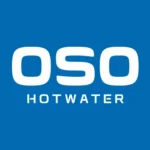According to Nikkei Asia, Japan and South Korea are set to announce joint initiatives, including the establishment of a hydrogen and ammonia supply chain. Leaders, Japanese Prime Minister Fumio Kishida and South Korean President Yoon Suk Yeol, will reveal their cooperative program during the Asia-Pacific Economic Cooperation forum summit meeting in the U.S. The collaboration aims to secure a stable supply of these decarbonizing fuels from global sources.
Both nations intend to leverage government-affiliated financial institutions, with the Japan Bank for International Cooperation taking a leading role, to support companies in joint investments for hydrogen and ammonia production projects worldwide. The envisioned Hydrogen Ammonia Global Value Chain concept aims to create a seaborne supply chain transporting these fuels by 2030.
Facing common challenges of decarbonizing energy-intensive sectors and fuel dependency, Japan and South Korea plan to jointly invest in projects in gas-producing countries, aiming for stable supplies at competitive prices. The initiative aligns with efforts in the private sector, such as joint projects by Mitsubishi Corp., Lotte Chemical, and RWE in the U.S., producing 10 million tons of “blue” ammonia annually. Another collaboration involving Mitsui & Co. and GS Energy in the United Arab Emirates targets 1 million tons of ammonia production annually, starting in 2026.
The cooperation extends beyond energy, with both nations deepening collaboration in quantum technology. National research institutes from Japan and South Korea will sign a memorandum of understanding, and measures to strengthen ties among universities will be announced. Additionally, leaders from Japan, South Korea, and the U.S. will explore avenues for semiconductor cooperation, welcoming joint developments and increased investments.

